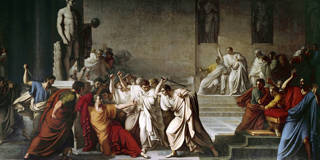OnPoint Subscriber Exclusive
Longer Reads provide in-depth analysis of the ideas and forces shaping politics, economics, international affairs, and more.

Killer Politics
The long history of political murder shows that its incidence has waxed and waned through different epochs. And recent political and technological developments suggest that the practice may be returning with a vengeance.
LONDON – On the final leg of his first European tour as US president, Joe Biden met with Russian President Vladimir Putin in Geneva. The period leading up to the meeting felt like two heavyweight champions squaring up and trading insults before a historic showdown. In the blue corner, Biden had readily agreed with a TV interviewer in mid-March that Putin is “a killer.” He then added that Putin has no soul (an obvious rebuke to former US President George W. Bush, who once claimed to have gotten a sense of that very thing).